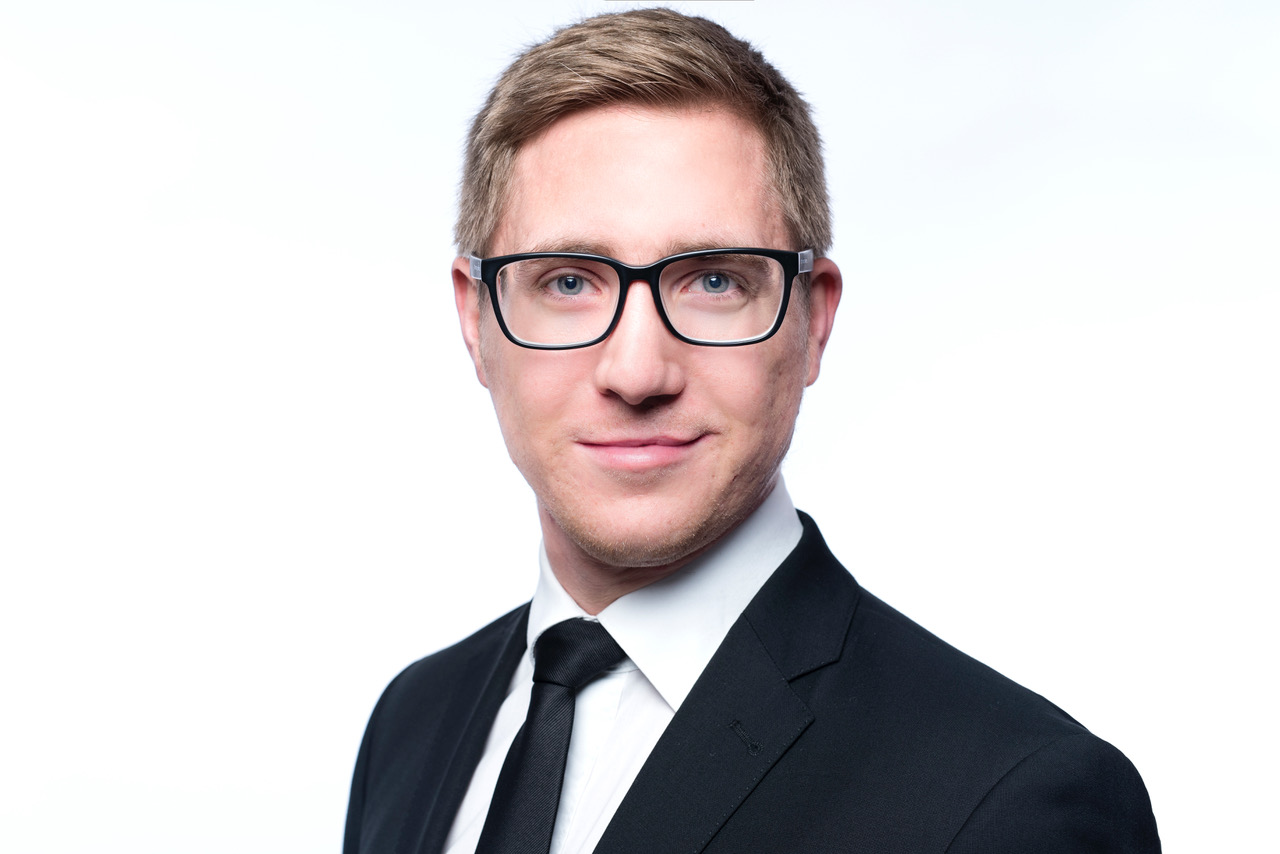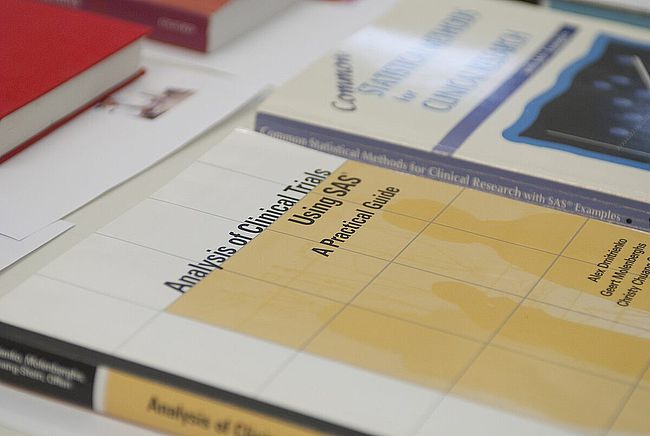
Master of Science (MSc)
Mathematics
More about the course
The Master's degree programme in Mathematics and Management builds on your Bachelor's degree and takes you up to the current status of research.
You will deepen your knowledge in:
- mathematics (e.g. optimisation, statistics, stochastic processes),
- economics (e.g. finance, microeconomics),
- computer science (e.g. numerical methods, algorithms).
The aim is to mathematically model economic processes, analyse them thoroughly and develop practical solutions based on this analysis. You will also learn how to work scientifically: you will deal with current issues and develop your own approaches, for example as part of your master's thesis.
Master of Science (MSc)
- Full-time
- each summer and winter semester
- German and English
- No restriction
120
4
Latest news
The Ulmer Master Days take place from 17 to 21 November 2025. Check out what our faculty has to offer here.
If you have clear ideas,
Who is the degree programme for?
Mathematics is the desire to understand the world and the mind as deeply and precisely as possible. Its theorems are not only fascinating because of their elegance, but also because they are everywhere: without mathematics, there would be no internet, no AI, no secure communication, no mobile phones and no weather forecasts. In other words, mathematics means the world.
This programme is right for you if you:
- enjoy analytical and logical thinking,
- find both abstract concepts and their applications exciting,
- want to familiarise yourself with new topics and explore them in depth on your own,
- see mathematical research or application as a career prospect.
A bachelor's degree in mathematics or a related field is required for admission. It is also possible to transfer from related fields of study.
Structure of the study programme
The aim of the master's programme is to deepen and expand your mathematical knowledge and methodological skills from your bachelor's programme to the current state of research.
Main focus of the Master's programme:
- introduction to independent academic work
- choice of individual specialisations
- discussion of current research in courses
- work on current research questions, especially in the Master's thesis.
You can find the research specializations at our faculty here.
Teaching
At Ulm University, we place great importance on providing you with the best possible education, intensive support and an open learning atmosphere. This includes, in particular, direct and personal contact with lecturers and individual counseling opportunities.
The breadth of expertise offered by our faculty opens up a wide range of options for you to shape your studies, particularly when it comes to choosing your specializations and areas of focus. In addition, the close contact between the faculty and industry makes it easy for you to participate in interdisciplinary research projects and collaborate with companies.
Finally, our teaching incubators CODEcenter and MATHFEED ensure up-to-date programming interfaces as well as exercise formats that remain useful beyond ChatGPT.
Programme structure Master Mathematics
Why Ulm University?
The following characterises studying at Ulm University:
- Personal atmosphere: At Ulm University you don't study in an anonymous mass organisation. Overcrowded lecture halls or long waiting times for seminar places and theses? Not here with us. Instead, you benefit from a personalised learning environment that supports you individually and offers you the best conditions for your academic success.
- Wide range of degree programmes: The mathematics degree programme in Ulm is just as diverse as the faculty itself. Whether you are more interested in theoretical issues or prefer applied Mathematics, you can tailor your studies to your interests and set specific specialisations.
- Close contact and interdisciplinarity: The direct line to lecturers gives you an early insight into current research projects. At the same time, close cooperation with other disciplines and partners from industry promotes a practical and interdisciplinary education.
- Reinforced career prospects: Thanks to our wide-ranging network in science and business, you have the best prerequisites for a successful career start. Our graduates are in demand, for example at financial service providers, in software development, in tech start-ups, and wherever data-based solutions are needed.
Going abroad
A great way to broaden your horizons in a discipline is to study at a foreign university. Ulm University students can apply for one or two semesters abroad at numerous universities, both throughout Europe as part of the ERASMUS programme and outside Europe. Internships and theses at other universities are also possible. Ulm University has exchange agreements with over 100 universities in 26 countries.
Specifically for the mathematical Master's programmes, there is the USA exchange programme, which allows you to spend a year at an American University. Participation in this programme is usually fully funded by a tutoring position at the host university.
Faculty exchange programmes
USA exchange programme
International Office

What students and graduates of UUlm have to say

Dr Sophie Schmieg, Software Engineer at Google San Francisco
You should see your studies as an opportunity to train your abstract thinking skills. It is not necessarily the exam content that will help you in your future working life, but rather the ability to recognise and use mathematical relationships.
Dr Pascal Heiter, Continental AG, did his doctorate at the Institute of Numerical Mathematics
Studying Mathematics answered many questions that I had asked myself at school, such as "Why is that so?" and "Where does that come from?". I learnt to think analytically and approach problems in a structured way. Ulm University is characterised by a very good supervision ratio, which is particularly noticeable in the first two semesters.


Magnus Heimpel, PhD student at ETH Zurich in the field of radar interferometry
Studying mathematics at Ulm University is probably characterised in particular by the proximity to the lecturers. On the Eselsberg, people know each other. I never had the feeling that I was one of thousands of students lost in the crowd, but remember a very informal atmosphere where you quickly feel at home.
Here you can see Magnus during his studies, and you can find a full interview here!
You can find even more impressions on our YouTube channel.
Introduction to Ulm.
Studying at Ulm University.
Career prospects: versatile & in demand
With a master's degree in mathematics, you will be highly qualified and versatile. Graduates of the mathematics programme are generalists: you will be able to quickly familiarise yourself with a wide range of topics and apply new methods. You will develop strong abstract thinking skills, analytical thinking and problem-solving skills – abilities that are in demand in many industries. Typical fields of application are:
- science and education
- finance and insurance
- software and IT industry
- management consulting, data analysis and research
- and much more.
In addition, a master's degree opens up the possibility of pursuing a doctorate.
During your studies, you can complete part of your actuarial training by obtaining DAV certificates in basic knowledge (DAV-Scheine des Grundwissens). The many trade fairs and the WiMa Congress will help you get started in your career.
Jörg Dersch, Human Resources, Munich Reinsurance Company
With over 6,500 employees at more than 50 locations around the globe, we are one of the leading international risk carriers in the reinsurance sector - an exciting and varied business field with interesting appointments for mathematicians.
From a recruiting perspective, the Faculty of Mathematics and Economics at Ulm University is one of our most important target faculties. For example, we accept an above-average number of Mathematics and Management graduates from Ulm on our trainee programme. The combination of quantitative skills, analytical strength and the focus on insurance topics, which is particularly important for our company, paired with the frequently utilised opportunity to spend a semester abroad, is what makes the faculty's students stand out.
Studying and living in Ulm
Welcome to the most liveable city in Germany. In Albert Einstein's birthplace, scientific research, leisure, top employers and culture come together in a unique way. Top locations and events such as the Ulmer Zelt, Nabada or the Donaufest attract visitors to the quaint streets. Here you feel at home!
The city of Ulm has a broad cultural programme. Ulm University students can even attend performances at Ulm Theatre free of charge! In addition, the student council organises film events every week at the CineSpatz film department.
Copyright: City of Ulm
Living and housing in Ulm
Last Step: If you can answer many of these questions positively, then a degree in mathematics could be the right choice for you!
- Do you enjoy thinking deeply and curiously about complex issues?
- Are you fascinated by abstract thinking and its application in the real world?
- Would you like to better understand natural and social structures – and help shape them
- Are you looking for a degree programme with vision that offers you countless opportunities for personal and professional development?
Any questions? Student Advisory Service





